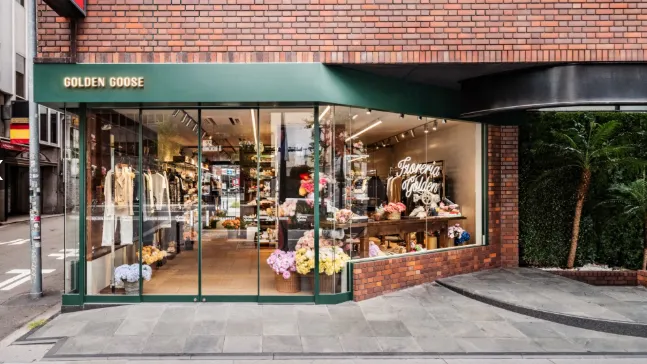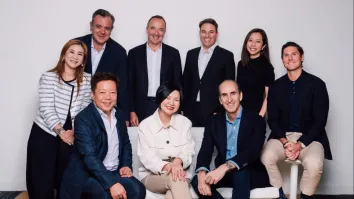Chef Eric Neo's recipe on what it takes to become a top chef

Chef Eric Neo strolled into the InterContinental Hotel lobby relaxed and with a friendly greeting despite his busy schedule.
Chef Neo was the first Asian to be appointed as an executive chef at an international hotel chain in Singapore (Crowne Plaza) — and at the age of 30.
Now with the InterContinental Hotel, at 37, Neo reflects on his 20-year career in the F&B industry. “As a dropout at that time, I didn’t know what I should do. I tried a few sales jobs but they did not work out. I then took up a course offered by the Restaurant Association of Singapore which put me on an internship at a Szechuan restaurant.”
With zero background in cooking, not able to hold a knife properly or know the difference between the types of vegetables, meat or seafood, Neo was immediately put through a trial by fire and found it difficult to adapt to the workings of a Chinese kitchen. “It was huge, hot, with many people working there and all conversing in Cantonese. Language was really a problem (for me).”
Neo decided that Chinese cooking was not so much to his liking and after his graduation, decided to work in a hotel that allowed him to get close to actual cooking rather than just food preparation.
On culinary programmes and young talent
Neo is happy with the quality of graduates from the number of culinary schools mushrooming in Singapore these days.
Chef Neo decided to work in a hotel that allowed him to get close to actual cooking rather than just food preparation.[/caption]
“Nowadays, with so many culinary schools opening up, even in polytechnics, the courses have improved so much. There is a good balance between practical and theory unlike in the past where they just throw you into the kitchen and you learn everything by yourself.
“Now, they teach you the fundamentals and show you the basics before they put you into the war zone,” says Neo.
However, having basic fundamentals is not enough. “When it comes to the real kitchen, one needs to know how to juggle real ‘live’ orders, the chef giving you instructions, prep work to be done for different meal periods … It can be a totally scary thing. It’s an extremely high pressured situation.
“When you put interns or students in stations like this you have to be beside them to guide them; otherwise, they’ll be very scared and they may throw in the towel the next day. If they can overcome the first month, I’d say more or less they should be quite safe.”
Neo works closely with the hotel’s HR department to hire interns and students from local schools including Nanyang Polytechnic, Temasek Polytechnic (affiliated with the Culinary Institute of America) and ITE (affiliated with the Institut Paul Bocuse).
Hiring for the hospitality industry means high emphasis on grooming and communication skills.
Neo remarks that, generally, customer service in the service scene in Singapore has always been a challenge. Four out of 10 service staff at InterContinental Hotel’s F&B outlets are Singaporeans; Neo finds interns from Korea and Taiwan to be highly service-centric.
“Singaporeans in the service line are very hard to get. They need to love to interact with people and engage in conversations with guests. You don’t need be have a cheerleader look but you must have a welcoming face. You need to anticipate the guests’ needs and have the right mindset.”
On F&B trends and sustainable seafood
The InterContinental Hotel has moved away from offering a buffet spread at its main all-day dining outlet to a European grilled concept with its new Ash & Elm restaurant. “Grilled food is very wholesome. People like flavour; it’s robust and you need to have a quality product in order to produce that.
“People, especially Singaporeans, nowadays are exposed to so many cuisines, especially with celebrity chefs coming here. They are smarter now and are willing to pay for quality food.”
Expanding on F&B trends, Neo finds molecular gastronomy to be interesting. “Molecular has always been an interesting cuisine. Some say the trend is dying but I see an uplift, with some trying to bring it back at a different level.”
On seafood, Neo believes in the important role that chefs can play in advocating for sustainable seafood; he is involved in the Marine Stewardship Council programme. “I think we should all support sustainable seafood and responsible farming. As chefs, we are able to control what the guests eat. If everybody does not care about sustainability, of course, in the end we will run short of certain fishes. But if we as chefs act responsibly, we can advise our guests what to eat. The raw product is in our hands. How we create the dish is up to us. We can come up with different creations to entice the guests to try.”
Day-to-day
Neo works on a 12-13-hour shift, starting at 8.30am and ending at 9pm. He comes to work at 8.30am and prepares for his morning meeting at 9am with the department heads to be briefed on the events for the day. Then, he checks out the breakfast service. After that, he goes back to the office to approve the combined list of all the hotel’s F&B outlets’ market items — from meat to seafood and vegetables. They are all done online via the hotel’s e-procurement system.
The lunch service is from 12pm to 2pm and he also checks out the other all-day dining outlets. The 3pm-5pm period is for clearing emails. In between, Neo attends many F&B promotional meetings and P&L strategy meetings.

Chef Neo believes that “if chefs act responsibly, we can advise our guests what to eat. The raw product is in our hands. How we create the dish is up to us. We can come up with different creations to entice the guests to try.”
On challenges and soft skills
Neo opines that chefs need to always be upgrading their skills. “Many years ago, I thought that as long as you are hardworking and learn new skills you’ll be able to survive in the hotel. But as I started to grow older and mingle with more senior chefs I realise that without the proper academic qualifications, it can be difficult for you to rise up.
“When it comes to being an executive chef, when you head the entire culinary team, you’ll have a team of 70-80 staff for three to four different outlets. You need to have meetings with sales, marketing communications, front lobby, room amenities, food promotion, concept, and so on. You need to speak up at meetings, reply to emails and talk to guests. You need to do all these things.
“You need not be a degree holder but you need to have an understanding of email, Excel and Word. When you go to sales meetings, people ask you for strategies — what drives revenue, what drives results. HR people ask you about people management.
“You need to learn to upskill and go for courses along the way. These are the things that many young people don’t understand are needed. Many young people who come to work think ‘it’s 10 years away’ and don’t want to worry about it … but if they don’t start now, it may be too late. They have to start carrying these skillsets in their portfolio.
“People management, time management, how you set your priorities … are all important. You only have so many hours in a day. You also need to make decisive decisions and be responsible for your decisions.
“When you make decisions, it’s not just for yourself — you are making them for your team. If it is not successful or it falls apart halfway, you need to have a backup plan to put it back together.
“You face challenges every day — it’s just how you overcome and solve them. You can have 10 challenges in a day … that’ll be a most challenging day. But if you overcome all 10, at the end of the day you’ll feel like you have really achieved something — and that’ll be a big achievement. And it’d boost my morale that I’d be able to say one day that I was able to solve 10 challenges in a single day. And in retrospect, the problem of solving 10 challenges is nothing.
“Solving challenges makes our work interesting, gives us more confidence, and the ability to make better decisions.”



















 Advertise
Advertise






